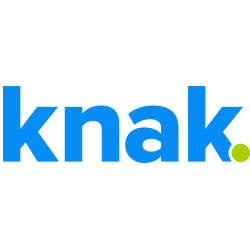The marketing operations landscape is changing fast, and marketers are facing new challenges every day. There is more pressure than ever to prove the value of marketing campaigns and show performance from an analytical perspective.
The people who help do that—marketing ops professionals—are the engines that keep marketing teams running. They are the people setting up and managing the marketing tech stack, helping campaigns stay on track, organizing processes, and so much more.
But just how are they managing it all? And how has the profession changed since companies first started introducing the role into their marketing teams?
Knak recently hosted a webinar, The State of the Marketing Ops Professional, that featured three seasoned marketing ops professionals who discussed everything from the career itself to top goals and priorities, tools used, and more.
Here are five marketing ops trends they've noticed.
1. The profession is growing—fast
In 2022, 80% of marketing teams have a dedicated marketing ops professional on their team. That is a huge jump from the year before, when only 65% did.
Such growth shows the increasing need for efficiency in executing marketing campaigns and using data in relation to marketing efforts.
Although "marketing ops manager" is still the most common title in the marketing ops profession, there are now more titles at the executive and VP levels.
The importance of the marketing ops professional role is reflected in the fair levels of salaries they receive , but many marketing ops professionals are looking for more clarity in their role and more resources to help them get the job done more effectively.
2. Supporting RevOps and optimization is the No. 1 priority
Working alongside the sales, demand generation, and customer service teams, marketing ops teams are focused on helping achieve revenue goals for the team. Aligning with customer-facing teams can help everyone improve workflows and more effectively communicate with and seek out prospects.
By improving processes and driving efficiencies, teams can put out more campaigns at a faster rate, generating more leads, and keep everyone happy!
As a result, it makes sense that the top marketing ops KPI is pipeline. Companies increasingly want to see how their marketing efforts are paying off.
3. Budgets are getting leaner, so tools are increasingly important
In times of economic uncertainty, Marketing is often one of the first departments to get its budget cut.
Having the right tools in place can help marketers execute and automate more of their processes, so they can do more themselves without spending as much time or money on outsourcing or additional resources.
For campaign assets such as emails and landing pages, specialized creation platforms can help cut the costs of agencies and extra designers or developers.
4. Marketing ops professionals are picky about their tech stacks
Although having more tools can help with executing campaigns (and cutting costs in the long term), not just any platform will do.
A lot of marketing ops professionals are loyal to the platforms they use. A full 70% of companies have been using their marketing automation platform for 3-10 years or even more.
When looking for new tools to add to their stack, marketing ops professionals prioritize platforms that integrate with their current tech. There are more and more tech products to choose from, and marketers want to be sure that if they're going to be learning and managing yet another tool, it should fit seamlessly into their current system.
Marketing ops professionals are also looking for tools that can scale and grow with them. It's not fun to constantly have to change tools, so having increased functionality and the capability to increase collaborators as the team grows makes for a good long-term investment.
5. Although marketing ops pros know how to code, they don't necessarily want to
Let's face it: Coding is hard, and building emails or landing pages from scratch can be a time-consuming process.
For many marketers who don't want to or don't know how to code, outsourcing such tasks can help them focus on planning and execution. Outsourcing comes with a few restraints of its own, though, such as high costs and long lead times.
So, what's a better solution? Many marketing ops professionals are turning to dedicated email and landing page creation platforms to get more of the "in the weeds" work done so they can focus on larger tasks.
* * *
Marketing operations professionals play a key role in bridging the gap between marketing strategy and execution, so it's no surprise that the profession is growing in demand.
They can be pivotal in helping companies increase their bottom line, but it's important that they have the team, resources, and tools they need to succeed.
Watch the State of the Marketing Professional webinar recording for more findings.




